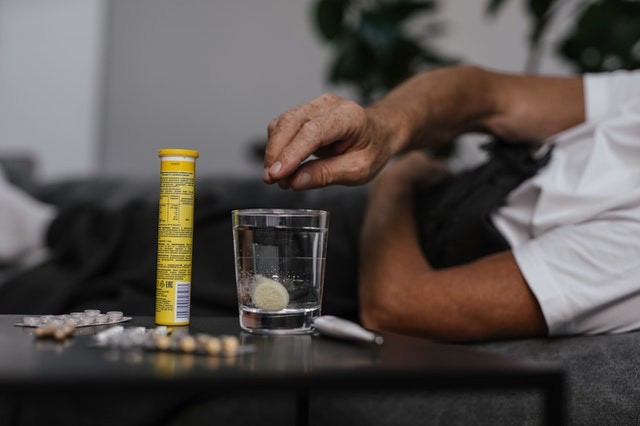Findings of a new population-based study carried out in the United Kingdom showed that if the maximum daily dose of dissolvable paracetamol is taken, an individual can easily go beyond the two grams of salt recommended in the daily diet.
As indicated in a ScienceAlert report, soluble painkillers might bring fast relief but the researchers warned that many of these drugs also come with a "hidden and hearty dose of salt."
For every 0.5 gram of acetaminophen or paracetamol that comes in a dissolvable tablet, one may swallow approximately 0.4 grams of sodium as well, one of the major components of salt.
Sodium is frequently added to medicines to help them disintegrate in water. This enables the body to absorb the drug quicker than by swallowing a pill.

Extra Salt in Paracetamol
Even for individuals who do not have high blood pressure, this new study proposes that extra sodium can take a toll on the body, specifically the cardiovascular system.
The study sought to copy a randomized controlled trial by comparing the health data of almost 300,000 adults above 60 years of age, some of whom with high blood pressure and some of whom didn't although all of whom were recently prescribed by their physicians with paracetamol.
Compared to patients who were prescribed painkillers minus sodium, the study investigators discovered those who tool paracetamol with sodium every day were slightly but substantially more at risk of heart attack, heart failure, stroke, and death one year after.
Minus closely looking at individual patients, it remains unclear how high intake of salt might be affecting such outcomes, although several studies have shown a link between sodium levels and cardiovascular disease among those who have high blood pressure.
Risk of Heart Problems
What's interesting about the results of this current research though, is that people who have both high and normal blood pressure were at similar risk of heart problems when extra salt was added to their everyday diets.
The actual risk only rose a percentage or so from those who take the drug without sodium, although at a population level that's still substantial.
There's a need for further tests to determine if this additional dose of sodium eventually resulted in higher blood pressure, therefore, affecting heart health. Previous research looking at how sodium-steeped drug affects blood pressure has produced inconclusive results.
The FDA Requirement
For now, researchers have warned doctors and patients to be mindful or conscious that some medication can go beyond the recommendations for sodium intake.
In a report from the European Society of Cardiology, Chao Zeng from Xiangya Hospital, Central South University in China said people need to pay attention not only to intake of salt in their food but not overlook hidden salt intake as well, "from the medication in their cabinet."
Zeng also said even though the United States Food and Drug Administration has required that all over-the-counter drugs should label the sodium content, the agency has not issued any warning about the possible detriment impact of sodium-containing paracetamol on the risks of certain conditions like cardiovascular disease, hypertension, and even death.
The study findings published in the European Heart Journal suggest re-visiting the effervescent and soluble paracetamol's safety profile. Related information about excessive intake of over-the-counter painkillers is shown on WXYZ-TV Detroit's YouTube video below:
Check out more news and information on Medicine on Science Times.












